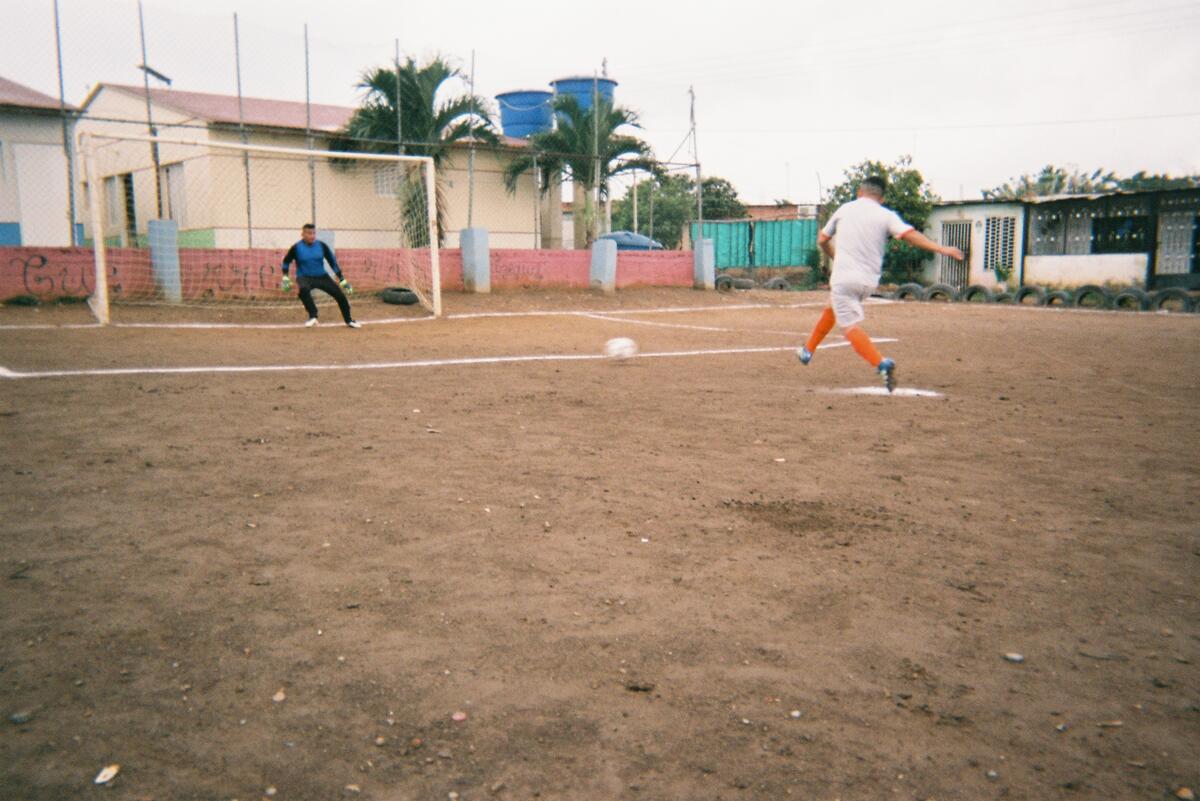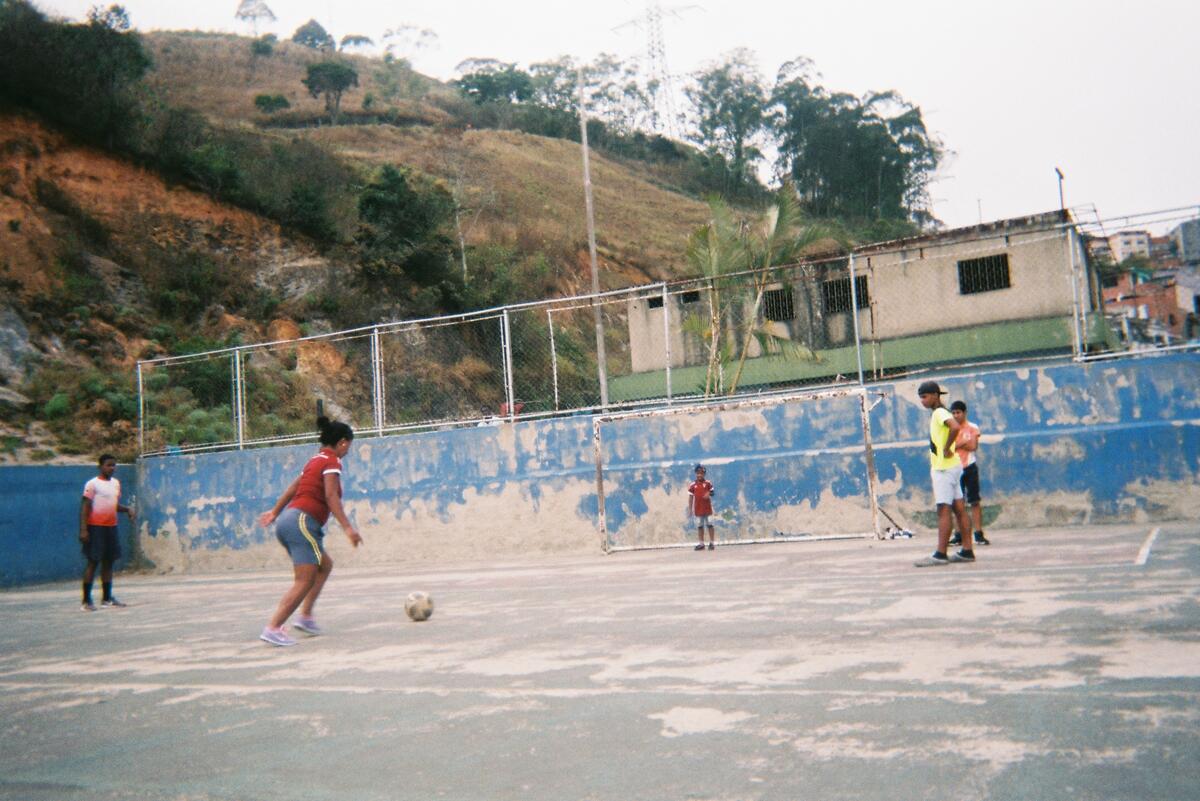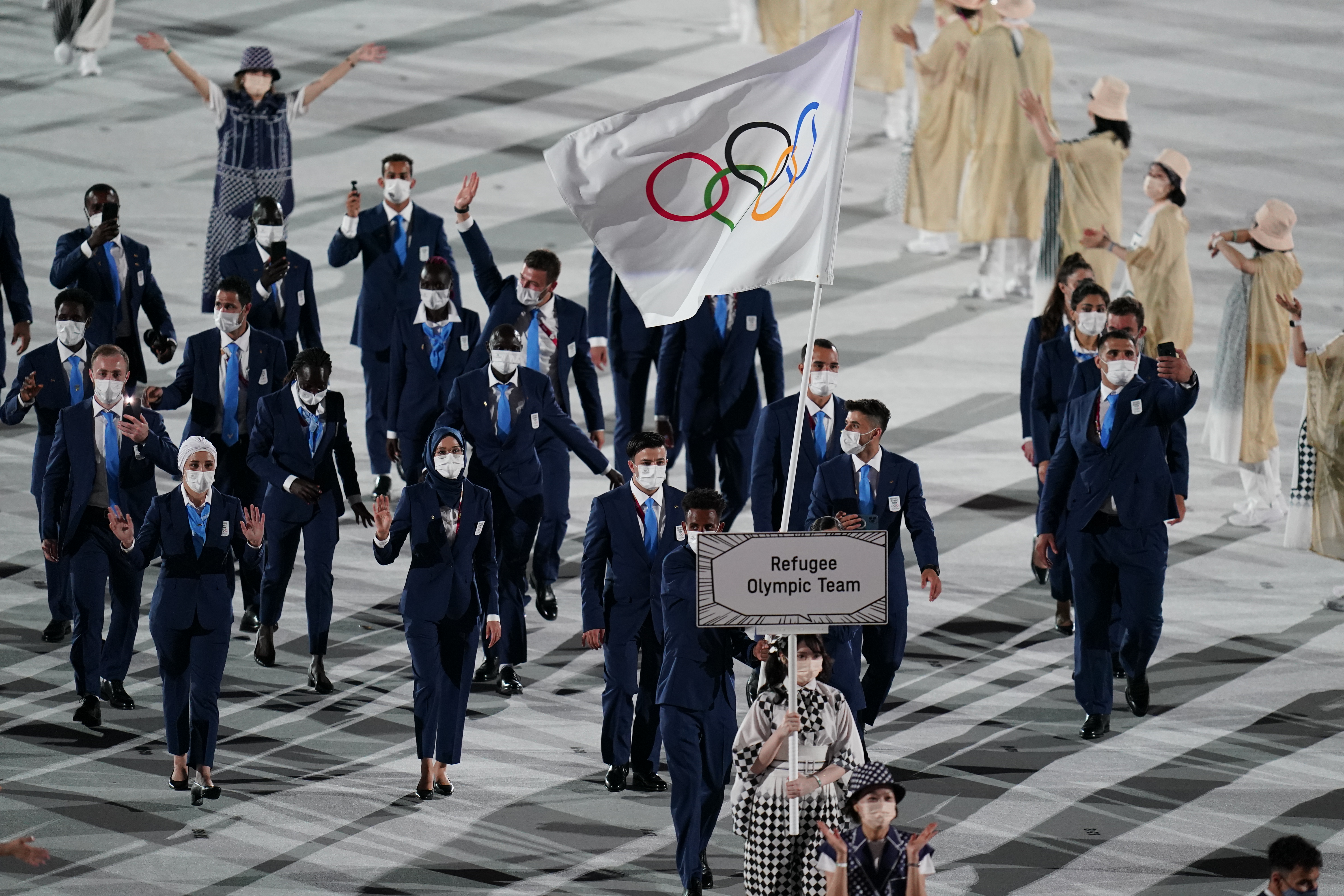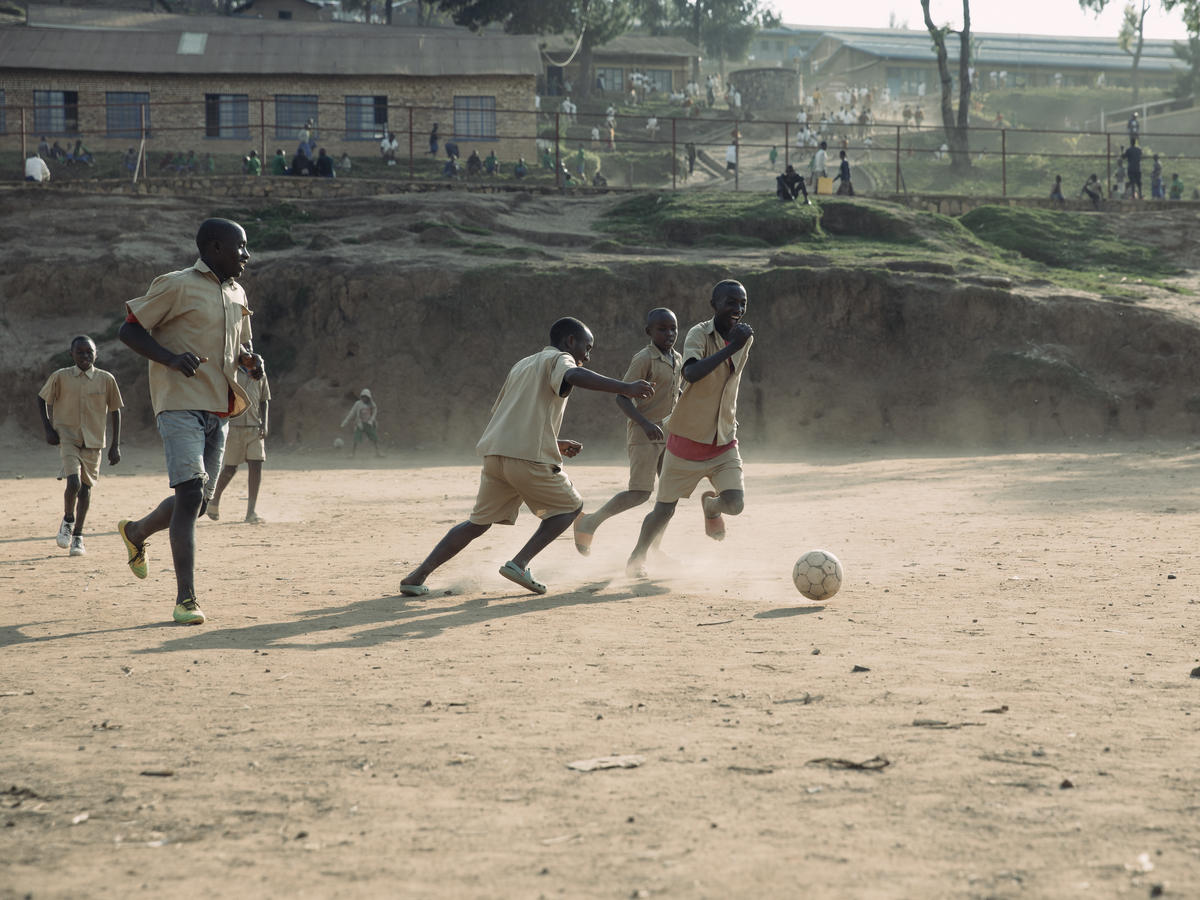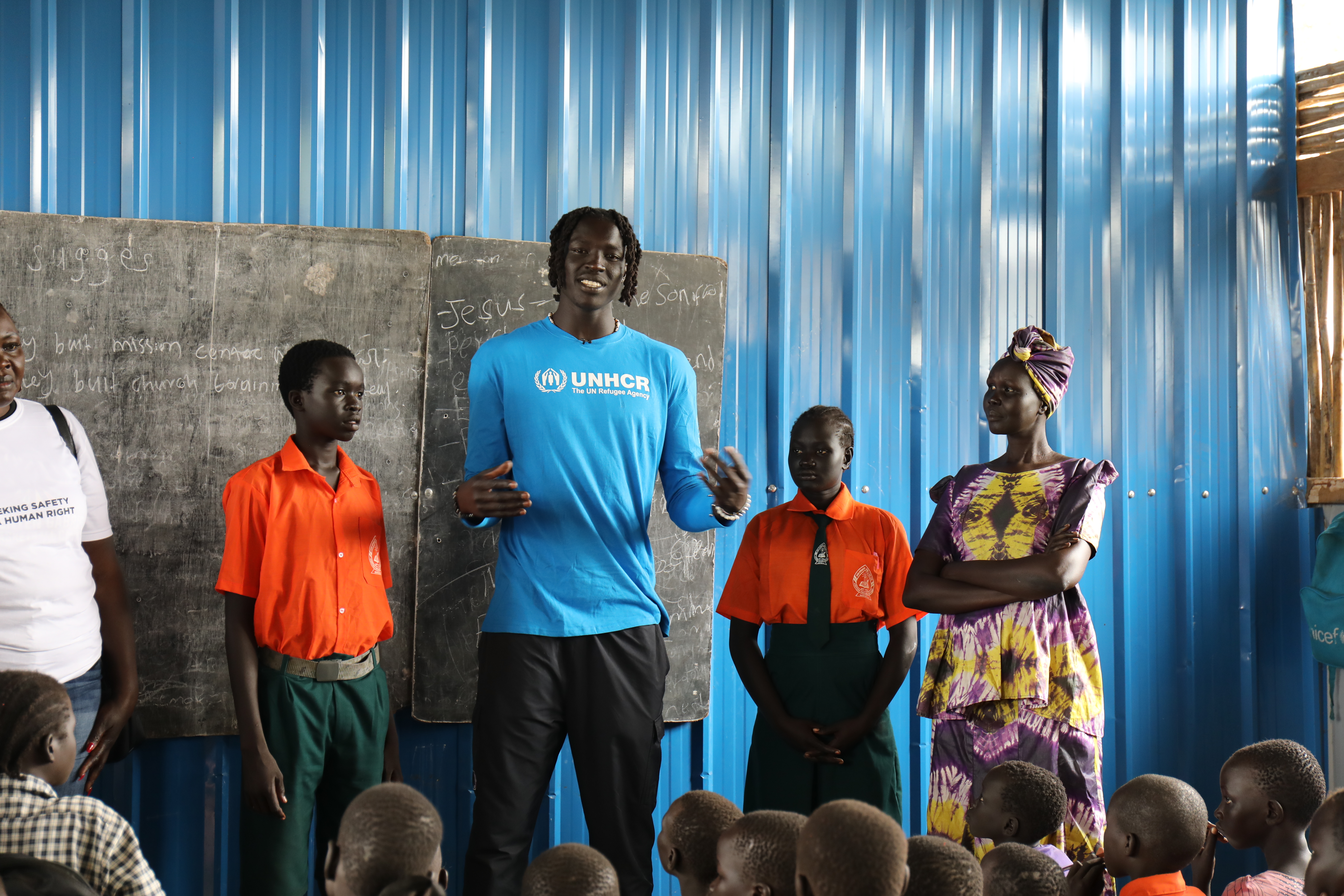Ivan Ljubicic's long journey from refugee to tennis stardom: "You simply have to carry on"
Ivan Ljubicic's long journey from refugee to tennis stardom: "You simply have to carry on"

ZAGREB, 9 Feb (UNHCR) - It's been a long road from the status of a refugee to joining the elite of the tennis world. But in December, more than 13 years after fleeing the violence of disintegrating Yugoslavia, Ivan Ljubicic led the team in his new home of Croatia to victory in the Davis Cup, the international team tennis championship.
The 26-year-old Ljubicic, currently ranked fifth in the world, had a remarkable 2005. Apart from securing the Davis Cup for his young nation of only 4.5 million people, Ljubicic crowned his individual season by participating in the Masters Cup that grouped the world's best eight players. But it's his history as a refugee makes him unique among the stars of tennis.
"It wasn't easy during all those years in my childhood."' he told the UN refugee agency. "I guess it'll have effect on me for the rest of my live. I didn't have many choices when deciding what I wanted to do in life. My refugee experience had taught me that you simply have to carry on."
Ljubicic was born on March 19, 1979 in Banja Luka in what was then Yugoslavia. Inspired by the performances of his idol, former Swedish tennis star Stefan Edberg, Ivan began to practice at the age of nine. By 12 he won his first junior tournament. But the start of Ljubicic's rise coincided with the beginning of the disintegration of Yugoslavia, a federation of republics with various ethnic groups and religions.
In 1992 war hit the republic where he lived, Bosnia and Herzegovina. Bosnian Serb forces, backed by the Yugoslav army and paramilitary forces, began "ethnic cleansing" of the republic's other constituent peoples, Moslems (Bosniaks) and Croats. The Ljubicic family decided to leave. With his father Marko not allowed to go, 13-year-old Ivan, his mother and his three-year-older brother Vladan found themselves alone.
"The bus drove only women and children to the airport, where we took the plane for Belgrade," Ljubicic said. "My mum cried knowing that we were leaving for good. The trip to the airport was depressing with several stops on the checkpoints. The airplane landed in Belgrade around 10 a.m. We had to wait on the bus station the whole day waiting for another bus.
"My brother and I did what our father told us and stayed by our mother the whole time. Finally, at midnight, we departed for Slovenia, through Hungary. But, as the bus couldn't enter Slovenia because of the Yugoslav license plates, we crossed the border on foot, entered a second bus and drove towards Ljubljana, the capital of Slovenia.
"We stayed there for a week until accommodation was arranged for us in the Adriatic town of Rijeka, in Croatia. After staying in Rijeka for a month, we finally ended up in the town of Opatija, in a hotel, which had been adapted to accommodate many other refugees who found shelter there. I didn't complain; I was only missing my dad," Ljubicic said.
After six months of separation, with little news of Marko, the family was finally reunited in November 1992 and settled in Rijeka.
"Being a kid at that time, I don't have particularly negative memories, or traumas, when I think of those days," Ljubicic said. But I know that it was very hard for my parents, to start from nothing - the mere fact that all their lives they were trying to build something, and then, over night, had to abandon everything. Those are moments in life when you have to find all the strength that is in you, to start completely from scratch. I know that it sounds simple, but the less you think about the past, the easier it is to face the future. "
Still, one can't forget the past entirely: "I am surprised at how often I dream of Banja Luka, our house there, my school, my friends."
In April 1993, Ljubicic and seven other talented refugee tennis players from Bosnia and Herzegovina were invited to study tennis in Italy. He spent almost three years there. In 1995, he won the Croatian championship for players under 16 years of age and in 1996 Ljubicic reached the finals of the junior Wimbledon. But it took "Ljubo", as he is known in Croatia, almost 10 more years of victories and defeats to become a star.
Ljubicic says he cannot understand the ignorance and negative stereotypes facing refugees.
"The biggest problem is the way mass media presents refugees, showing them mostly as convoys of people without anything, because it is their interest to show only misery and plight. And this creates fear of them, because they have nothing," he said. "But, refugees are also educated people, people who, like everybody else, want to make something of their lives.
"My life taught me never to judge people by their looks, or where they come from, but to try to see only the best in every person."
By Neven Crvenkovic, UNHCR Zagreb


